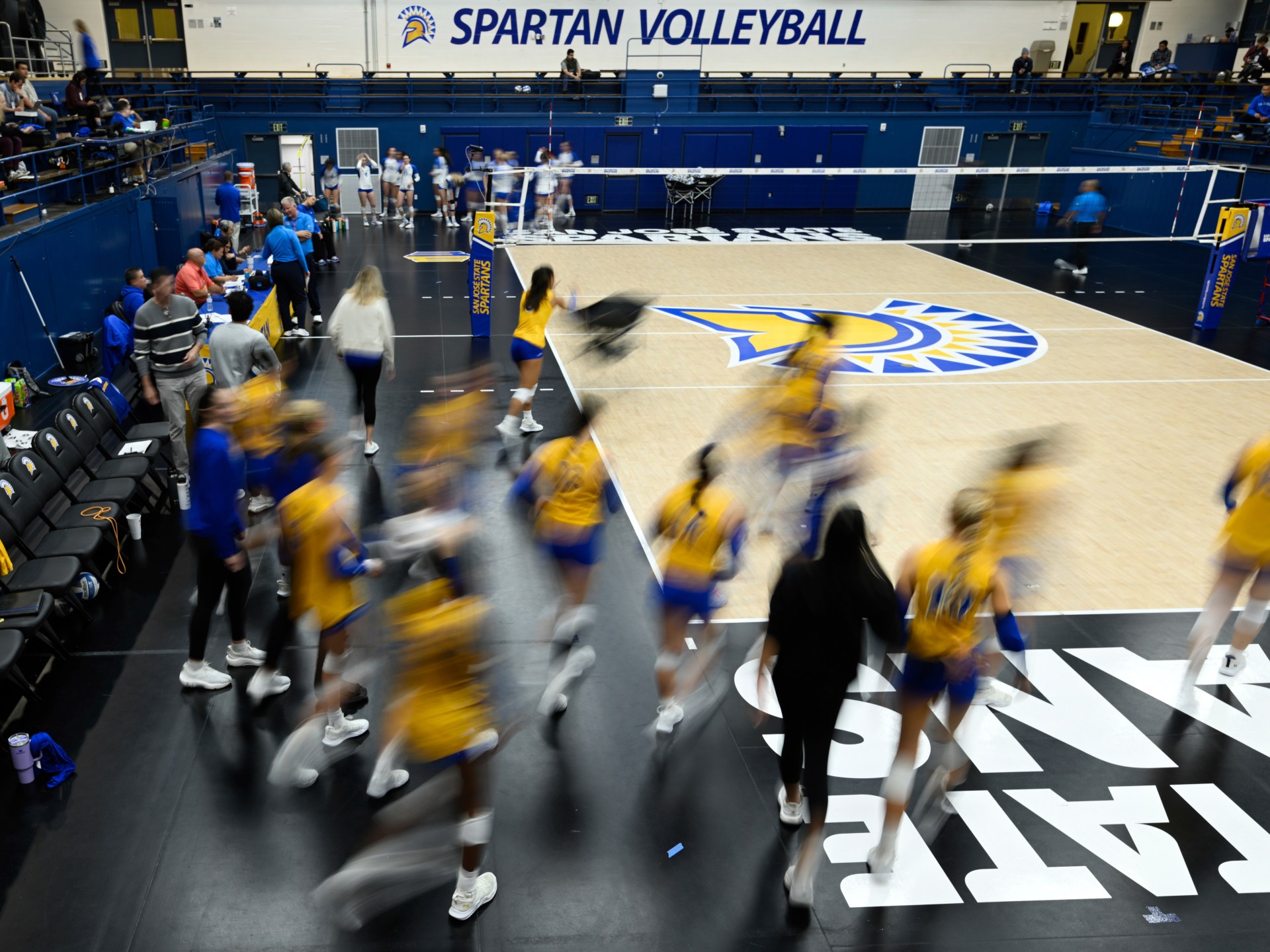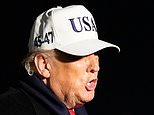
US governing body for college sport updates policy to align with Donald Trump’s executive order on women’s sport.
Transgender girls and women will no longer compete in female events at most college sporting events in the United States after a governing body’s decision to bar athletes who were born male.
The National Collegiate Athletic Association, the main governing body for college sport in the US, said on Thursday that it would limit competition in girls’ and women’s sport to female-born athletes only.
The NCAA’s announcement comes after US President Donald Trump signed an executive order the previous day to deny funding to educational institutes that allow trans girls and women to compete in female sport.
“The NCAA is an organization made up of 1,100 colleges and universities in all 50 states that collectively enroll more than 530,000 student-athletes. We strongly believe that clear, consistent, and uniform eligibility standards would best serve today’s student-athletes instead of a patchwork of conflicting state laws and court decisions,” NCAA president, Charlie Baker, said in a statement.
“To that end, President Trump’s order provides a clear, national standard.”
Baker said the change reflected the body’s commitment to “protect, support and enhance the mental and physical health of student-athletes”.
“This national standard brings much-needed clarity as we modernise college sports for today’s student-athletes,” he said.
The NCAA is by far the largest governing body for college sport in the US, with more than 500,000 student-athletes competing in its events each year.
Other major umbrella organisations, such as the National Association of Intercollegiate Athletics (NAIA) and the National Junior College Athletic Association (NJCAA), oversee competitions with fewer than 100,000 annual competitors.

Trans women’s participation in sport has become a political lightning rod in the US, with advocates of LGBTQ rights calling for greater inclusion of trans athletes and critics arguing that their participation is unfair to girls and women.
Opinion polls have pointed to growing public opposition to trans women competing against female-born athletes amid high-profile controversies involving the participation of athletes, such as college swimmer Lia Thomas.
Thomas, who was born male and began hormone-replacement therapy in her late teens, won the NCAA Division I national championship in 2022 before being barred from women’s events by World Aquatics.
In a New York Times/Ipsos poll published last month, 79 percent of Americans said that trans women should not be allowed to participate in female sports, up from 62 percent in 2021.
Riley Gaines, a former college swimmer who has joined a lawsuit against the NCAA over its decision to allow Thomas to compete in female events, welcomed the sporting body’s announcement.
“I can’t even begin to tell you how vindicating it feels knowing no girl will ever have to experience what my teammates and I did,” Gaines said on X.
Trump, who has signed four executive orders directed at trans people, repeatedly criticised efforts to further LGBTQ inclusion in sport and other areas of life during his election campaign.
During a signing ceremony for his executive order on women’s sport on Wednesday, Trump said his administration would not “stand by and watch men beat and batter female athletes”.
LGBTQ advocacy organisations widely condemned Trump’s order as discriminatory and not based on facts.
“We’ve known this day was likely to occur for a long time, as this administration continues to pursue simple solutions to complex issues, often resulting in animus towards the most marginalized communities in our country,” Athlete Ally, which champions the inclusion of LGBTQ people in sport, said in a statement on Wednesday.
“Despite this executive order, we will continue to choose love, acceptance and curiosity with anyone interested in creating a future of sports where everyone belongs.”







